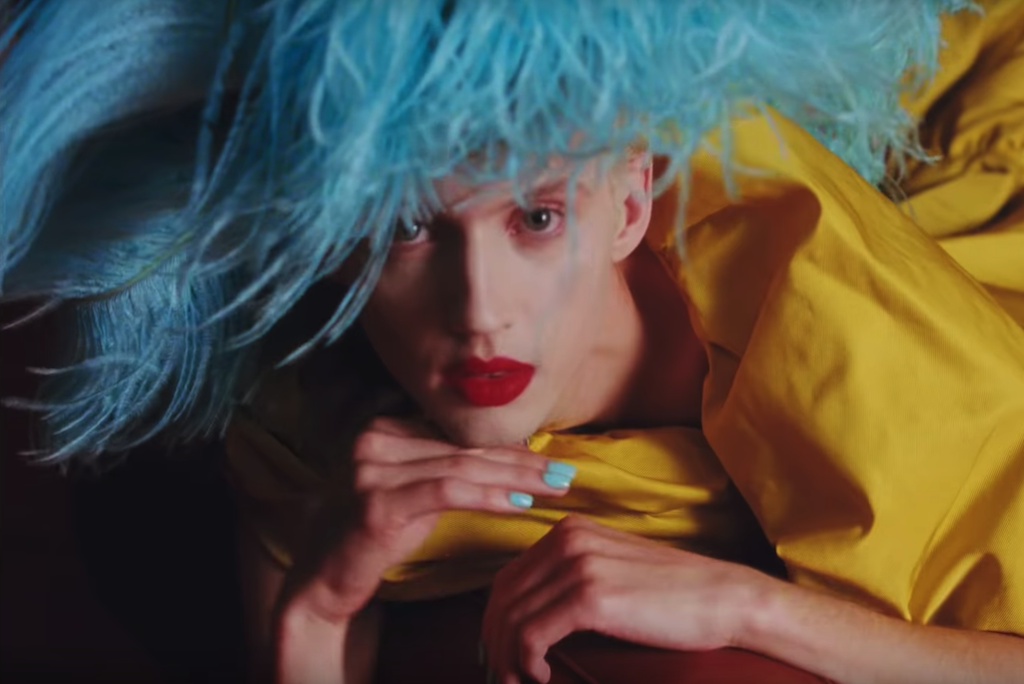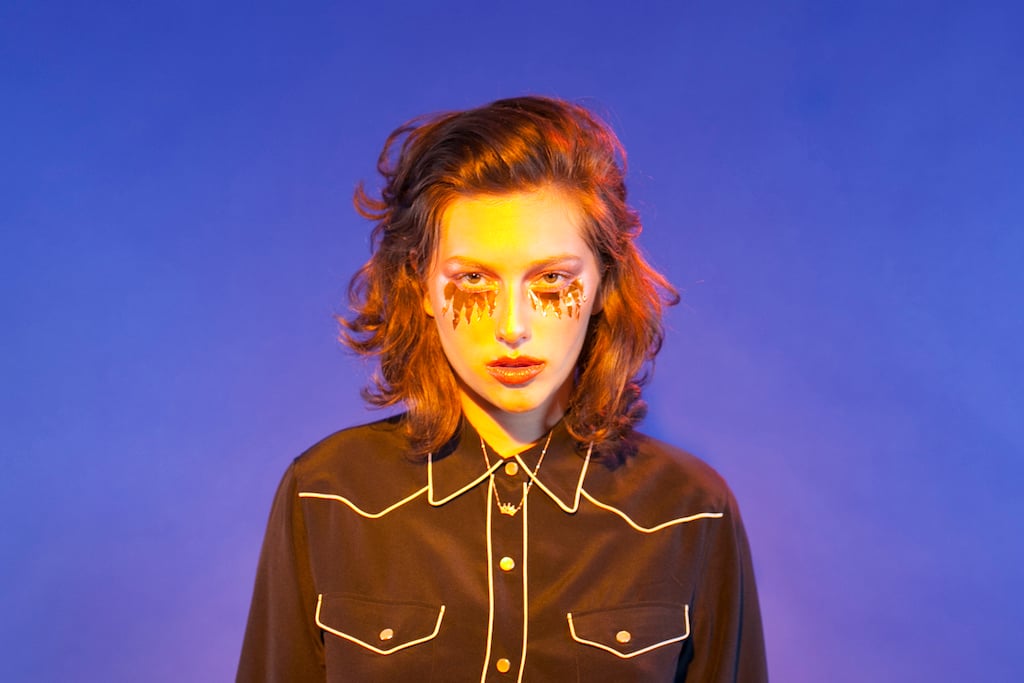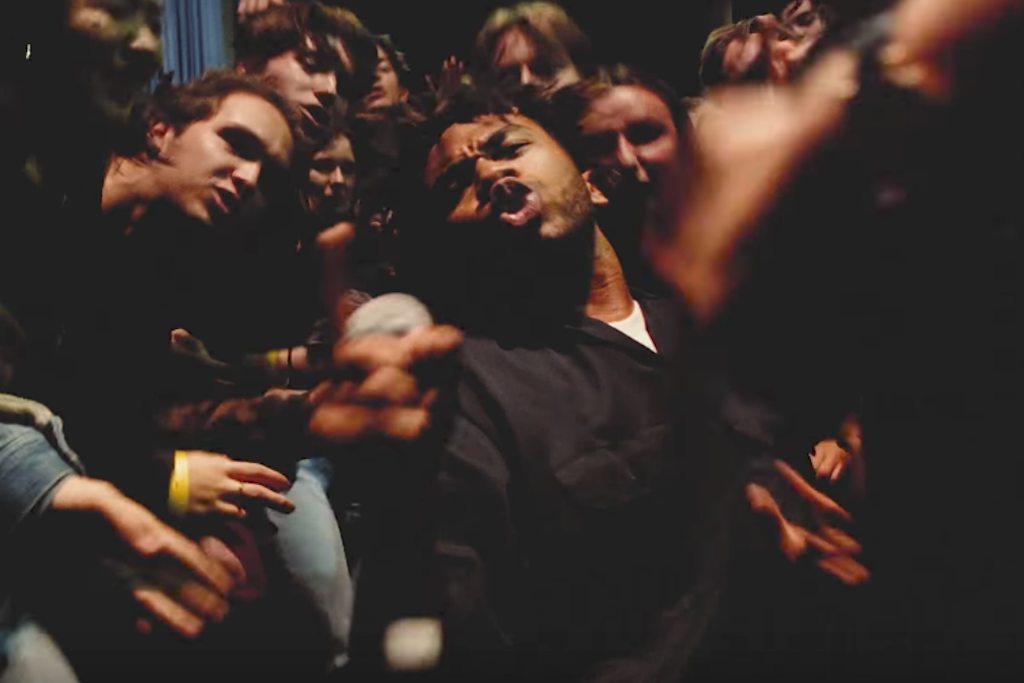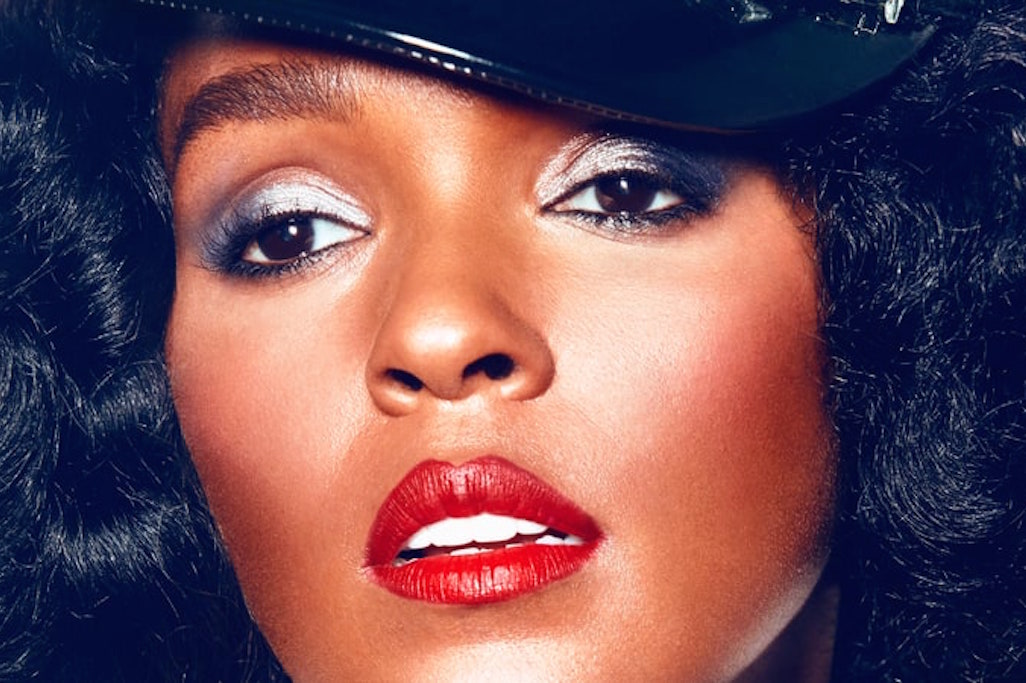Queer In Review: This Is What LGBTIQ Music Achieved In 2018
LGBTIQ musicians are being heard more loudly than ever before. But did we hear what they were saying?

“It’s our year, it’s our time. To thrive and let our souls feel alive. #20GAYTEEN,” singer Hayley Kiyoko tweeted out on New Year’s Day 2018.
And so it is. The past twelve months have lived up to the hashtag: in terms of popular culture, it’s been an extremely gay year. Some of music’s biggest, most exciting and best releases were by LGBTIQ acts, too: ever heard of Janelle Monáe, Troye Sivan or BROCKHAMPTON?
Not to say queerness hasn’t previously been present in music or popular culture (it always is: whether the straights know it, the queer community has long been a pioneer of trends and taste). It’s more that queer voices and narratives have been boldly fore-fronted this year in ways which, even in 2018, remain exciting.
For all its buzz-wordiness, ‘visibility’ is vital as ever. While even a decade ago queers were forced to feast on the scraps of whatever mainstream representation we could find (remember when we all pretended Milk deserved several Oscars?), LGBTIQ musicians and artists are now making waves across both stadium stages and the underground. On a base level, cross-cultural visibility makes our existence irrefutable; beyond that, it gives voice to the diversities and complexities of queer experience.
With that in mind, what are those voices saying? Visibility is great, but what did queerness sound like in 2018?
The answer to that question can’t be answered by cataloguing every release by queer musicians (and even if we wanted to, it’s truly impossible). Nor are we suggesting these are the only queer artists that matter, or that sexuality solely defines their musical output.
Rather, it’s about pulling at the threads of thought that unite a disparate and genre-mashing mix of releases from LGTBIQ artists this year, and considering what is (and isn’t) being said: think of it as a queer in review.
I Bloom For You
The transformative power of love has forever been pop-fodder, but in 20gayteen we’ve been spoilt for choice when it comes to explicitly queer ballads, bops and devotionals which go beyond just same-sex pronouns.
Take ‘Bloom’, the title track and self-described ‘bop about bottoming’ from Troye Sivan’s sophomore album. The song and Sivan proved incredibly headline-grabbing this year, which is worth examining.
Across media, two men having sex is largely shied away from, either implied or off-screen, or treated as a punchline (as it was in Sivan’s cringe-worthy interview on The Project). Last year’s intoxicating Call Me By Your Name is a perfect example of the former, cutting to black before things got explicit.
And while ‘Bloom’ isn’t an anthem about fucking, it winks to a knowing audience, following the path set by Frankie Goes To Hollywood’s ‘Relax’, and Little Richard’s ‘Tutti Frutti’. Its intent is a little different, though.
Sivan describes Bloom as an album about “being absolutely whipped” — its title track is a letting go into love that is hard to reach when shame hasn’t been stripped. It steers away from the stereotypical image of gay sex as carnal and animalistic, transforming it into a tender, loving act.
As Sivan flirts with a series of looks, queer aesthetics and history are treated as a source of strength — it’s how he’s able to bloom.
The music video ties things together, a stunning homage to a heap of LGBTIQ artists from Mapplethorpe to Leigh Bowery and Perfume Genius, whose 2012 ballad ‘Put Yr Back N 2 It’ also depicts anal sex as an act of devotion. Here, as Sivan flirts with a series of looks, queer aesthetics and history are treated as a source of strength — it’s how he’s able to bloom.
“If there is one thing that marks Sivan’s reign as something new, it is not his being openly gay, or his singing about gay sex – that would be revisionist,” Brian O’Flynn wrote for The Guardian. “It is, put simply, his wholeness. The figure of the gay male in pop has historically been fragmented, exploited for its aesthetics, cloaked in straightness, buried underground. Sivan does not represent its coming out, but its coming together.”
For O’Flynn, Sivan — alongside Olly Alexander, the frontman of Years and Years — represents a sign that (white) gay men are now a palatable package. While that pop-stardom might not be available to other LGBTIQ acts at the same level yet, plenty are at the threshold.
Your Pussy Is God, And I Love It
It’s been a massive year for Mikaela Straus, the 20-year-old behind genderqueer moniker King Princess. Back in February, the Mark Ronson protégé debuted with ‘1950’, a seemingly nostalgia-soaked love song. But much like Sivan, Straus isn’t naively a-historic: she knows the ’50s wouldn’t have been kind to her.
‘1950’ sounds sweet, but it’s about a cold present-day relationship, one where the constricted affections resemble the ways LGBTIQ couples once communicated in, either to avert attention or because of internalised homophobia. Straus says the idea came from reading Patricia Highsmith’s The Price Of Salt, which is better known by its recent Cate Blanchett-starring film adaptation, Carol. It’s a song of queer frustrations and patience, all wrapped into one.
Things are simpler on recent single ‘Pussy Is God’. Co-written with Straus’ partner Amandla Stenberg, it turns a lover’s body into a benevolent site of healing. She’s not the only one, either, as Janelle Monáe’s ‘Pynk’ uses the same metaphor — and has the added bonus of a music-video where Tessa Thompson’s head pops through Monáe’s vulva-frilled pants.
Considering sapphic sex is continually misrepresented (remember Blue Is The Warmest Colour?), ‘Pussy Is God’ and ‘Pynk’ are a counterpoint. Both might be first-most concerned with feeling, but they let it be known two women can fuck without a man around to watch. Their goofy music videos are proof, impervious to any pervy eyes.
Meanwhile, UK act Rina Sawayama’s ‘pansexual anthem’ ‘Cherry’ took a similar metaphor while toning things down from worship to a crush. Its sugary chorus sounds like a rush of infatuation — even if following through might mean the illusion pops apart.
For all that, sometimes we’re not all that far from the shallows. When Rita Ora released ‘Girls’, a ‘Lady Marmalade’-esque single with Bebe Rexha, Charli XCX and Cardi B about drinking wine and kissing girls, it was clearly meant to break the internet. But it landed more like Katy Perry’s ‘I Kissed A Girl’ 2.0 — queer-bait-y as fuck, using queerness as an edgy accessory.
While Ora has apologised and said the song was written about personal experience, it doesn’t make the song sound any less hollow — it’s too concerned with who’s seeing the kiss to enjoy it. Hayley Kiyoko’s ‘What I Need’, a flirty bop with Kehlani, is ‘Girls’ done right: two queer women singing about the magnitude of their chemistry, rather than its salaciousness.
It Starts Right… Now!
Elsewhere, LGBTIQ artists explored the complexities of romantic relationships, from elations to pitfalls, without feeling pressured to necessarily make a Queer Statement Piece.
Boy In Jeans, BROCKHAMPTON affiliate Ryan Beatty’s debut album, is an album only a 22-year-old could make, full of an earnestness which comes from feeling feelings for the first time.
Indebted to Frank Ocean’s Channel Orange, the album is an R&B collage of experiences. Like ‘Pussy Is God’ or ‘Pynk’, a lover becomes a ‘God In Jeans’ here too, but for Beatty, it’s definitely a short-lived projection, serving a purpose — even if only for a night. Figures come and go across Boy In Jeans, but the hazy warmth remains constant, pulsating from within.
Boy In Jeans is an album only a 22-year-old could make, full of an earnestness which comes from feeling feelings for the first time.
Opener ‘Haircut’ bubbles with a feeling of self-revelation, the kind that comes from dancing alone in your bedroom, where you can sing grand statements like “it starts right now!” and completely believe them.
Closer to home, Brisbane quartet Totally Mild released sophomore album Her, filled with sharp indie-pop about lead singer Liz Mitchell’s marriage. It’s a tender reminder that insecurities don’t fall away in a happily ever after — but, like Handsome’s No Play EP, it’s also a solid ‘fuck you’ to any No voter. Best to sing along.
On the other end, serpentwithfeet’s soil is an experimental R&B album which interrogates love as an endless labour, a tilling through each other’s traumas. Josiah Wise was raised singing gospels, but even when sounding its most heavenly, soil remains grounded. It is a reminder that queer love isn’t an idealised force, but something material, capable of growth and decay.
‘We Get To Choose Our Own Family’
Like ‘visibility’, ‘community’ has proved to be a 2018 buzzword, but plenty of LBGTIQ artists articulated and explored what the word can offer in practice.
Blood Orange’s fourth album Negro Swan led the charge. For all its merits, and the way Dev Hynes continues to swirl together a variety of queer, black experiences and soundscapes, it’s a short interlude called ‘Family’ that stands out.
On it, trans activist and writer Janet Mock discusses how LGBTIQ people are ‘not limited by biology’. For Mock, family is a safe-space where you can “show up, as you are, without judgment, without ridicule, without fear or violence, or policing, or containment”.
It’s an ethos shared with Pose, Ryan Murphy’s drama set in New York’s 1980s ballroom scene which has been acclaimed for centring the strength of that community, rather than using merely using its struggles for drama. No surprise that Mock’s a writer and director on Pose, one of many of its trans and queer people of colour on- and off-camera: her short Negro Swan interlude is further proof that ‘For Us, By Us’ will always produce clearer, more powerful work.
Janet Mock’s Negro Swan interlude is further proof that ‘For Us, By Us’ will always produce clearer, more powerful work.
You can hear that too on Star, the debut album by Oakland singer Ah-Mer-Ah-Su. Again, the album is littered with interludes and conversations between Ah-Mer-Ah-Su and her friends about creating self compassion and love in a world in which they, as queer and trans people of colour, are told they aren’t worthy of it. It’s a tender, confessional listen — but one filled with bops about loving to break boys’ hearts, too.
Speaking of hearts, a lot’s been written about BROCKHAMPTON’s young, adoring LGTBIQ fanbase, which erupts into fervour online any time the boyband’s leader Kevin Abstract tweets.
While Abstract’s the only out LGBTIQ member, the band has fostered a community which is loose with labels — at a recent concert, Abstract asked the whole audience to scream “I’M GAY”, saying “say it with confidence, even if you’re straight.”
Given the show’s crowd was a mix of young queers and young hype-beast bros, it feels exciting, a move beyond the ‘no homo’ calls predominant even just a few years ago.
Still, community is more than just screaming ‘I’M GAY’, and BROCKHAMPTON’s audience’s continual lack of respect for other bodies at gigs shows that. But given their new album iridescence hit #1 across the world, BROCKHAMPTON has a huge platform — and it’s harder to implement those communal spaces in a meaningful way in a several-thousand person venue.
It’s much easier to do in a club. You’d know this if you’ve seen Melbourne electronic-punk duo Habits scream “check your privilege at my fist” into a crowd.
The line’s from ‘Selfie’, which might be the most aggressive LGBTIQ protest song of the year. At release, they described it as being “about the ways we are made to feel unsafe and disposable in our queer bodies and reclaiming our power in spite of it”. When the infectious hook — “I’m going to put a lipstick on/I’m going to take a selfie” — comes in, it sounds like a threat.
Whole New World (Pretend World)
Elsewhere, LGBTIQ musicians continue to imagine and create the world in which they’d like to live, without totally abandoning their realities. Janelle Monáe and SOPHIE have led the charge.
Janelle Monáe’s third album, Dirty Computer, was a pivot away from the afro-futurist fantasy she’d created across her previous work. While the themes of racial and sexual liberation carry on, Monáe dropped her cyborg alter-ego Cindi Mayweather in favour of a more direct presence: herself.
A lot of attention has been paid to Monáe’s sexuality this year, as she publicly identified as pansexual and a “free-ass motherfucker” in a Rolling Stone feature. You can hear that freedom in the sauntering Prince-like bass line of ‘Make Me Feel’, or the playfulness of vulva-ode ‘Pynk’.
But that freedom isn’t just sexual: even on songs where Monáe raps against her oppressors like ‘Django Jane’ or ‘Screwed’, she sounds untouchable. Freedom defines Dirty Computer, as Monáe jumps between genres while confronting police brutality, sexual harassment and racism without letting them tie her down.
SOPHIE’s debut album, Oil Of Every Pearl’s Un-Insides, is less concerned with joy. Instead, it’s a pop hell-scape, filled with etherial, metallic sounds that clang and coldly refract off one another.
As one of PC Music’s biggest producers, SOPHIE has spent the past few years shaping pop music from the shadows, working with the likes of Charli XCX and Madonna while also releasing one-off saccharine-industrial singles. Last year, she faced the public (and came out as trans) with the vulnerable ‘It’s Okay To Cry’. Oil Of… is the next step forward, a maelstrom which both reveals and further obscures its maker.
Compare it to Christine and the Queen’s Chris, another 2018 album celebrated for sharply interrogating gender without leaning into buzzwords or what Laura Snapes calls the ongoing ‘poptimism’ of the times. On Chris, Héloïse Letissier bounces between binaries: she sings in French and English, intertwines shame and pride, muddling butch/femme aesthetics, and reimagines leaving one-night stands with her member swinging in sweatpants. There’s a freedom in oscillating, but it’s also a cataloguing of pain, of continually being reduced to one or the other.
In comparison, Oil Of… does not play within confines so much as destroy them. Writing for Pitchfork, Sessi Kuwabara Blanchard argued that SOPHIE’s choppy use of vocal modulation and anonymous, often indistinguishable voices among her own is a way to articulate her gender. By stretching things out, she both mocks the constraints of pop-music’s sexual binary and reaches a new place that isn’t otherwise possible with a futuristic, robotic voice.
‘Faceshopping’ is the most immediate example. Its lyrics ( ‘My face is the shop I front/I’m real when I shop my face’) loop around continually against discordant industrial smashes, as if SOPHIE is constantly being re-forged in an assembly line — equally thrilling and painful.
It’s as if SOPHIE is constantly being re-forged in an assembly line — equally thrilling and painful.
As a classically candy-coated PC Music track, SOPHIE’s ‘Immaterial’ is much more escapist. Riffing off Madonna’s ‘Material Girl’, ‘Immaterial’ plays with a history where queer people were once restricted to ventriloquism, of idolising female pop stars instead of being them. We’re moving beyond that — as a chipmunk voice chants, getting higher-and-higher with excitement, ‘we can be anything/anywhere/anyway we want’.
It’s the future we want, but not necessarily one we can sustain beyond its four minutes. Not surprisingly, ‘Immaterial’ is Oil Of…‘s most popular, dance floor-ready track — and famously, SOPHIE’s least favourite of her songs. The brutal, nightmarish album closer ‘Whole New World (Pretend World)’ is her way forward, a sledgehammer of sound and convention.
Jared Richards is a staff writer at Junkee, and co-host of Sleepless In Sydney on FBi Radio. Follow him on Twitter.




